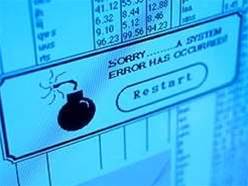
Skype spokesman Villu Arak said in a posting to a company blog that while the outage was caused by a system crash, it was not due to a deliberate malicious effort.
The problem, explained Arak, arose when a large number of users installed Microsoft's August security update. After restarting their computers, the users all attempted to log in to the Skype service, causing an overload on the components of the service that handle peer-to-peer connections.
Normally, a "self-healing" feature would intervene and allow the system to correct or compensate for the increased load. That feature, however, never activated and the result was a chain reaction that took down the entire service.
"The issue has now been identified explicitly within Skype," Arak declared.
"We can confirm categorically that no malicious activities were attributed or that our users’ security was not, at any point, at risk."
Arak said that Skype has already patched the code responsible for the crash. Arak did not say that the system would be able to completely weather a similar flood of traffic in the future, but he did pledge that users would not be " similarly effected" the next time the issue arises.



_(20).jpg&h=140&w=231&c=1&s=0)
_(23).jpg&h=140&w=231&c=1&s=0)





 Cyber Resilience Summit
Cyber Resilience Summit
 iTnews Executive Retreat - Security Leaders Edition
iTnews Executive Retreat - Security Leaders Edition
 Huntress + Eftsure Virtual Event -Fighting A New Frontier of Cyber-Fraud: How Leaders Can Work Together
Huntress + Eftsure Virtual Event -Fighting A New Frontier of Cyber-Fraud: How Leaders Can Work Together
 iTnews Cloud Covered Breakfast Summit
iTnews Cloud Covered Breakfast Summit
 Melbourne Cloud & Datacenter Convention 2026
Melbourne Cloud & Datacenter Convention 2026












_(1).jpg&h=140&w=231&c=1&s=0)



